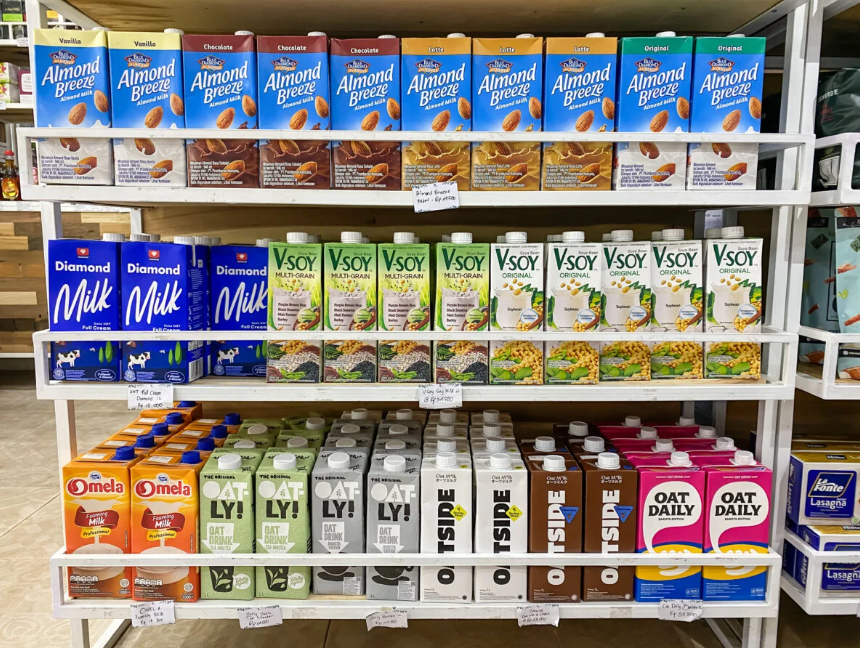Plant-based alternatives contain less saturated fat and more fiber

Plant-based meat and milk are as or more healthy than the same products made from animals, according to a new report.
ProVeg International analyzed the nutritional profiles of 422 plant-based meat alternatives and 251 plant-based milk alternatives across 11 countries. The results were compared with the nutritional value of the products’ animal-based counterparts using internationally recognized nutrition guidelines. These included the WHO Nutrients Profile model (NPM) and the European Food Safety Authority’s (EFSA’s) nutrition claim legislation.
Plant milks contained less total fat and less saturated fat than cow’s milk. In particular, soy milk, which offers comparable protein to cow’s milk, was found to be the healthiest plant-based milk option. Another recent study found that drinking soy milk instead of cow’s milk reduces blood pressure, cholesterol, and inflammation, even if sweetened.
According to the ProVeg analysis, the plant-based meats had less saturated fat and significantly more fiber than animal-based counterparts.
Fortification matters

Fortified plant-based products were found to be more nutritious, with some exceeding the nutritional value offered by animal-based products. But the report found that levels of fortification varied between countries, leaving room for improvement.
Most of the plant-based milks were fortified with calcium. Calcium fortification was most commonly found to be 120 mg per 100 ml — comparable to cow’s milk. The UK, US, and European countries all tend to fortify plant-based milks with vitamin D, and a majority fortify with vitamin B12. But these remain variable between countries.
For plant-based meat, fortification is still not common practice. The Netherlands performed the best on this score, with more than 70 percent of plant-based meat products being fortified with both iron and B12. But other countries were less consistent.
Salt and sugar
In keeping with other analyses of the salt content of plant-based meat, ProVeg found that many exceeded healthy limits on salt, with an avergae of 1.3 g per 100 g. By comparison, similar animal-based products contained an average of 1.1 g per 100 g.
While little sugar is added to plant-based meat, some plant-based milks do contain sugar. However, ProVeg found that all plant-based milks analyzed in all the countries were less sugary than cow’s milk, which naturally contains lactose. Most of the plant milks could be classified as low in sugar, containing no more than 2.5 g per 100 ml.
Recommendations
The report makes several recommendations for everyone from producers to consumers of plant-based alternatives.
For producers, the report stresses the importance of healthy product formulas that limit harmful ingredients such as salt and add nutrients through fortification.
Governments should help with this by providing national guidelines to make plant-based alternatives healthier. Consumers, meanwhile, can look for products that are lower in added sugars, saturated fats, and salt.
“The report really highlights how much potential plant-based alternatives have to bring more diversity to people’s plates and replace vast quantities of animal-based products currently dominating the supermarket shelves,” Anna-Lena Klapp, report co-author and Head of Research at ProVeg, said in a statement. “Plant-based alternatives can build bridges between people’s current eating habits and a healthy, climate-friendly eating habit. Each stakeholder can play an important role in enabling the establishment of healthy and sustainable diets.”
Article Credit: plantbasednews